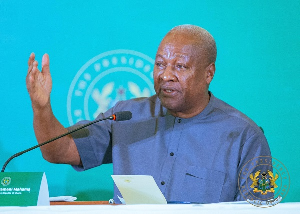The Ghana National Ambulance Service, mandated to provide Emergency Medical Services(EMS) in the country,may soon grind to a complete halt and be unable to carry out its mandate in an event of an emergency as fleet of vehicles to complement the near-obsolete vehicles of the Service have been locked up in a legal tussle between the suppliers.
Information available to Weekend Finder indicates that BIGC, a foreign company with a local partner in Ghana, which won a government tender to supply 200 vehicles with special specification for the National Ambulance Service, is locked up in a legal tussle, leading to a delay in the supply of the urgently needed ambulances.
Ten of the 200 vehicles have since been imported into the country and parked at the mercy of the weather at the forecourt of the State House for close to a year at a time when the Ambulance Service is in dire need of vehicles for its operations.
The National Ambulance Service, currently, has a total fleet of 161 vehicles distributed, serving 130 stations across the country.
Dr Ahmed Nuhu Zakaria, Director, National Ambulance Service, told Weekend Finder that each service station is required to have at least two ambulances, but the Service is unable to meet this requirement due to the unavailability of vehicles.
“For every station, we should have a back-up ambulance so that in an event that one is not operational, there can be back up; but currently, we are not able to meet that because of these constraints”, he said.
He noted that the fleet for Emergency Medical Services has a five-year lifespan, after which they are required to be changed.
The current fleet of vehicles for the Ambulance Service would have reached their lifespan by the end of the year as they were procured in 2010. This would mean that if the Service is not supplied with a new fleet of vehicles by the end of the year, it would have no option but to run on obsolete vehicles.
Already, most of the ambulances at the various stations have broken down.
In the Upper West Region, for example, four out of the nine vehicles serving the region have broken down.
Dr Ahmed Nuhu Zakaria said aside the urgent need for new ambulances; it has become necessary for the country to set up an air ambulance service.
He explained that the surge in domestic airline business and Ghana’s oil find makes it mandatory, if the country is to effectively manage situations in time of an emergency.
“Should an emergency situation happen with a domestic airline which needs an emergency evacuation, the Ambulance Service might not be in the position to help because it does not have the capacity to handle such situation”, he said.
Before 2004, Ghana did not have any organised Emergency Medical Service system. It was until the May 9, 2001 stadium disaster, which claimed the lives of over 170 spectators, that moves were made to establish an Ambulance Service.
The National Ambulance Service was subsequently established in 2004 as a pilot programme with only seven stations in three out of the 10 regions of the country (Greater Accra, Ashanti and Eastern).
By 2008, the number of fleet had increased from seven to 24, with each ambulance station having an ambulance each.
In 2010, the government procured 161 ambulances for the National Ambulance Service, which helped it increased from 24 to 130 stations across the country.
Dr Ahmed Nuhu Zakaria says the Service would need more than a 1,000 fleet to effectively serve Ghana’s population of 25 million people.
General News of Friday, 13 November 2015
Source: The Finder













